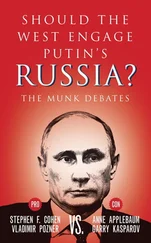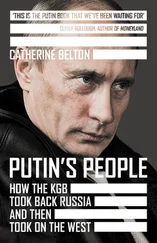By the time Khodorkovsky joined the Komsomol in the late 1970s there were precious few true believers left. Membership was a purely practical matter, a cynical choice. Moved by ambition, cool calculation, and his own natural zeal, Khodorkovsky thrived in the Komsomol, building a good reputation and strong connections that would stand him in very good stead later on. He graduated from the Mendeleev Institute of Chemical Technology in 1986, the year after Gorbachev had come to power. Fate, in the guise of institutionalized Soviet anti-Semitism, did him a favor by denying him a job in the defense industry. He took advantage of the greater economic freedom under Gorbachev to try his hand at business; his first enterprise was a flop, but he caught on quick.
His first serious success came from working the Soviet financial system, in which there were three kinds of money—foreign or “hard” currency; regular cash (or “wooden rubles” as they were sometime derisively called), which was used to pay salaries; and noncash rubles, which existed on the books of various enterprises and institutions but were difficult to transform into usable, spendable money. Those with a small-time-hustler mentality went into the black market for hard currencies, paying much more than the absurdly low government-set rate. Those who thought bigger like Khodorkovsky saw that a handsome profit was to be made by turning noncash rubles into real cash rubles, then ultimately changing them into hard currency, i.e., dollars or, as they were affectionately known, bucksy and greeny.
Using the connections he had built up during his Komsomol years, Khodorkovsky convinced them to let him handle their noncash rubles to increase their organizations’ real wealth while of course cutting himself and his associates in for a healthy piece of the action. The money flowed, fueling Khodorkovsky’s various other enterprises, which included construction and importing computers that could be sold for a 600 percent profit. There was a great headiness to it all, an odd combination of cool, sober calculation and the elation of sudden wealth.
By the end of 1988, taking advantage of new laws on co-ops, including financial co-ops (i.e., banks), Khodorkovsky, at the age of twenty-five, had his own bank called Menatep. The old saying that a man with a gun can rob a bank but a man with a bank can rob a country definitely applies to the Russia of those days. Menatep, like the other new banks that had sprung up in profusion, routinely violated government restrictions on hard currency. But as David Hoffman puts it in The Oligarchs : “The gradually collapsing Soviet state had no way to keep track of the fleet-footed easy money boys.” [227] Hoffman, The Oligarchs , p. 125.
The people holding positions of power in the slowly sinking Soviet state had a vital interest in maintaining good relations with the new class of young bankers. In the final years of the USSR fortunes in hard currency and gold belonging to the Communist Party simply vanished without trace. There is some suspicion that Khodorkovsky’s bank was involved in this diversion of wealth as part of a hand-washes-hand relationship. Khodorkovsky himself always vigorously denied any such relationship while at the same time maintaining: “A bank is like a waiter. Its business is to cater to its clients independently of their political beliefs or affiliation with this or that camp.” [228] Ibid., p. 126.
The last thing anybody cared about in the Russia of the late 1980s was moral or legal niceties. The state, the sole owner of everything, had always been seen as a fair target to be ripped off—some lumber, bricks, electric cable, whatever you could get away with. Now, however, whole enterprises and institutions could be ripped off from the state. It was a matter of degree, not kind.
* * *
Though akin geologically, gas and oil are quite different economically and politically. Oil is much more valuable than gas and easier to transport—it can be shipped by tanker, train, or pipeline. Gas can be sent only by pipelines unless there are in place the complex and costly systems for liquefying it at one end and deliquefying it at the other. Russia had little capacity for that in the nineties. Though worth less than oil and more difficult to transport, gas would nevertheless prove a formidable instrument in the political arena, since Europe was hooked on Russian natural gas to heat homes and run industries.
Oil is the big moneymaker. In time it along with gas would account for some 50 percent of Russian federal government revenue. Balancing the budget was entirely dependent on the price of oil. It was a dangerous situation and everyone knew it, but in the chaos of the nineties you used what you had at hand, and getting through the month was more critical than planning for any future.
A second fundamental difference between gas and oil in Russia was that the Ministry of the Gas Industry had transformed itself into a corporation called Gazprom. Shares in Gazprom could be sold, but the state would remain the majority owner. The more complex oil industry quickly subdivided into ten or so separate entities, which meant that they, unlike Gazprom, could easily be privatized.
In 1995 the Russian government was hurting for money. Nobody was paying their taxes, especially those who had become suddenly and exorbitantly rich. The government’s principal source of revenue, oil, had sold for an average of $21.07 in 1994 and wasn’t doing much better in 1995 at $22.03. This all set the stage for what Marshall Goldman in his book Petrostate describes as “the biggest and most controversial transfer of wealth ever seen in history,” [229] Marshall Goldman, Petrostate (New York: Oxford, 2008), p. 63.
which elsewhere in the book he terms more succinctly “a massive scam.” [230] Ibid., p. 64.
That transfer, blandly known as Loans for Shares, was brilliantly simple and worked like this: the banks would loan the state money with state enterprises as collateral. Fine, except for one thing: “Everyone knew from the beginning that there was little likelihood that the state would be able to collect the taxes it needed to repay the bank loans. How could it when the oligarchs themselves and their companies, as well as their banks, were among the largest tax delinquents?” [231] Ibid.
And so the state would have to auction off its holdings to pay off its loans.
As for the auctions, almost all of them turned out to be rigged. Foreigners and most other viable bidders were excluded from the bidding. With the number of bidders sharply limited, it is no wonder that in virtually every case, the auction winner turned out to be the bank running the auction itself, or its straw or accomplice, and for a price that barely covered the amount of the loan. It was part of the Loans for Shares scheme that allowed Mikhail Khodorkovsky and his Menatep Bank to end up as the owners of Yukos … bidding a mere $309 million. (Not pocket change but cheap for even a poorly operating oil company. It soon had a market value of $15 billion.)
Scammed though it was, the state was not entirely a fool either. Yeltsin and his team had good reason to go along with Loans for Shares aside from the revenue stream it produced. Privatizing the oil industry would break up the “red directorship,” the party bosses who controlled the industry and were not about to go gently into history’s good night. The support of the oligarchs was essential to Yeltsin in the 1996 elections, in which it was feared that an already weary, cynical electorate would veer hard left to the Communist Party.
Khodorkovsky was a man with a tendency to get religion. Beneath his placid, “corporate” exterior, he had a deep need to find something to which he could dedicate himself utterly. He became an apostle of the gospel of wealth. Suddenly it was obvious—the most glorious thing in the world was to be gloriously rich. Khodorkovsky even went so far as to say that there had to be something wrong with a person who did not aspire to be an oligarch. Yet he was not oblivious to the transformations that had occurred within himself, which he could regard with distance and irony: “If the old me met the new me, he’d shoot him.” [232] Baker and Glasser, Kremlin Rising , p. 275.
Читать дальше
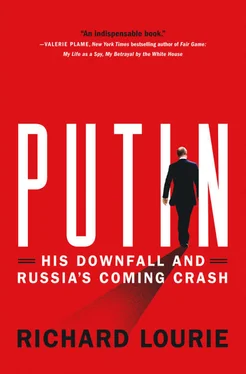

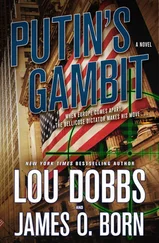
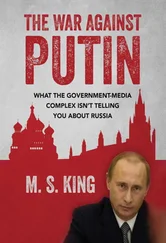
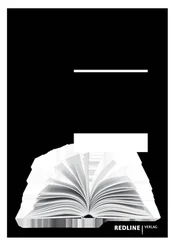
![Stephan Orth - Behind Putin's Curtain - Friendships and Misadventures Inside Russia [aka Couchsurfing in Russia]](/books/415210/stephan-orth-behind-putin-s-curtain-friendships-a-thumb.webp)

